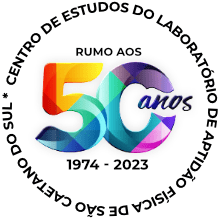Promotion Of Physical Activity In A Developing Country: The Agita São Paulo Experience
Artigo publicado na Revista Public Health Nutrition em 2002. Escrito por Victor Keihan Rodrigues Matsudo, Sandra Marcela Mahecha Matsudo, Douglas Roque Andrade, Timoteo Leandro Araujo, Erinaldo Andrade, Luis Carlos de Oliveira e Glaucia Braggion. O objetivo deste artigo é apresentar os pontos-chave de um programa de intervenção (Programa Agita São Paulo) para promover a atividade física em um país em desenvolvimento.
Palavras-chave
Agita is a multi-level, community-wide intervention designed to increase knowledge about the benefits and the level of physical activity in a mega-population of 34 million inhabitants of São Paulo State, Brazil. The main message was taken from the Centers for Disease Control/American College of Sports Medicine (CDC/ACSM) recommen- dation that: ‘everyone should accumulate at least 30 minutes of physical activity, on most days of the weeks, of moderate intensity, in one single or in multiple sessions’. Activities were encouraged in three settings: home, transport and leisure time. Focus groups were students from elementary schools through to college, white and blue collar workers, and elderly people. Innovative aspects included: (1) a research centre leading the process, (2) scientific and institutional partnerships (over 160 groups), (3) a feasible approach – the ‘one-step-ahead’ model, (4) empowerment, (5) inclusion, (6) non-paid media, (7) social marketing, and (8) culture-linked. Data were obtained from 645 random, home-based questionnaires over four years – stratified by sex, age, education and socio-economic level. These data show that the Agita message reached 55.7% of the population, and among these, 23.1% knew the main message. Recall of Agita and knowledge of its purpose were well distributed among different socio- economic levels, being known by 67% of the most educated. The prevalence of people reaching the recommendation was 54.8% (men 48.7%, women 61%); and risk of being sedentary was quite smaller among those who knew the Agita message (7.1%) compared with those who did not know (13.1%). In conclusion, based upon the Agita Sa ̃o Paulo experience, it appears that a multi-level, community-wide intervention to promote physical activity may obtain good results if the model contains the items listed above.
